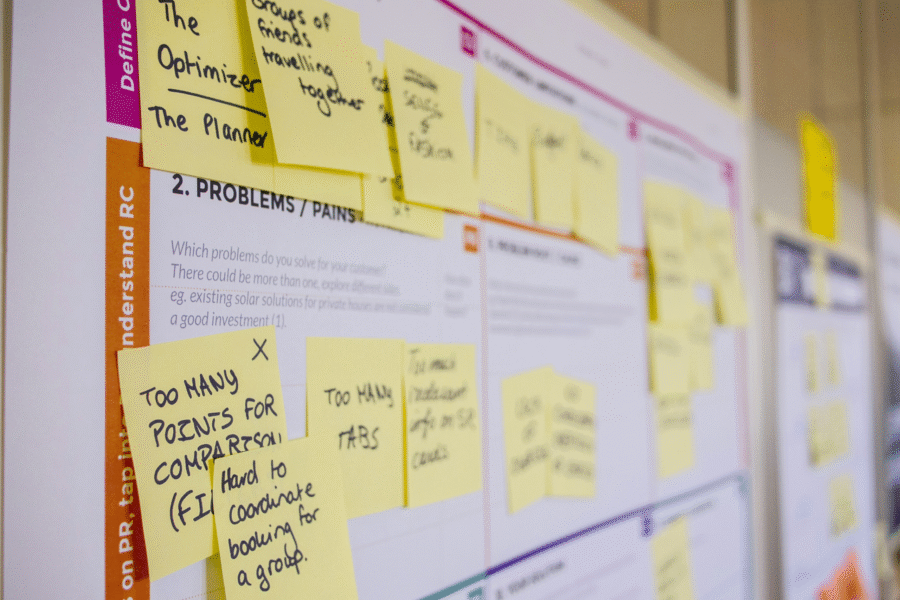Anyone of a “certain age” (and I’m certainly one of those), will occasionally take stock of how far technology has advanced in what seems an incredibly short space of time. In the world of project management, where success hinges on meticulous planning, streamlined execution, and seamless collaboration, decades of technological advancements have resulted in incremental innovations. Just as we’ve all wrapped our heads around how to set up a Teams meeting, along comes artificial intelligence (AI) as a driving force across the industry. Its impact on the project management software market (a subject close to my heart) is already shaping up to be transformative.
But beyond this self-evident observation, those involved in shaping and delivering this shift will need to work with customers to interrogate their data, understand their needs and deliver solutions that make their businesses fit for the future. As ever, these fundamentals rarely change, regardless of the ever more sophisticated tools and technology.
AI’s integration in PM (project management) software heralds a new era of data-driven decision-making and efficiency. At its heart lies the ability to accumulate and interrogate vast troves of data, offering invaluable insights and predictive analytics to project managers.
One of AI’s most compelling contributions to project management software is its capacity to analyse historical project data and identify patterns, trends, and potential risks. By leveraging machine learning algorithms, project management platforms can sift through mountains of information to provide actionable intelligence, enabling teams to anticipate challenges, allocate resources more effectively, and optimise project workflows.
Other end users may be more focused on AI-powered project management software’s potential to radically streamline task automation and resource allocation. Through intelligent algorithms, these platforms can autonomously assign tasks, optimise schedules, and adjust resource allocation based on real-time data inputs and project dynamics. This not only streamlines project execution but also frees up valuable time for project managers to focus on strategic decision-making and problem-solving.
Moreover, AI-driven project management software holds immense promise for enhancing collaboration and communication within project teams. I never fail to be impressed at the sheer cleverness of the technology, but it’s important not to be intimidated by it. It must be seen as a tool to help us. Natural language processing capabilities enable these platforms to analyse communication patterns, identify bottlenecks, and facilitate smoother interactions among team members. By fostering a collaborative environment and promoting transparency, AI-powered software fosters greater synergy and cohesion across project teams.
What I have noticed from years working in the energy sector is that clients have many software tools and programmes that, to a greater or lesser extent, provide the means to run projects more efficiently. But not everyone needs the same thing – some need supply chain scrutiny, some need to streamline proposals, and others need to manage timesheets at scale. It’s the lack of integration and inability to use these tools to the best effect that doesn’t always pull through. The challenge therefore becomes how best to manage the project management function! It still requires the human touch.
AI’s ability to harness data and provide actionable insights offers a competitive edge to organisations seeking to navigate complex projects and dynamic market landscapes with agility and precision.
However, as with any technological advancement, the widespread adoption of artificial intelligence in project management software is not without its challenges. Concerns surrounding data privacy, algorithmic bias, and the ethical implications of AI-powered decision-making must be carefully addressed to ensure the responsible use of the technology.
Nevertheless, the potential benefits far outweigh the challenges, and the trajectory of the project management software market is clear: artificial intelligence will redefine the way projects are planned, executed, and managed.
The integration of artificial intelligence into project management software represents a seismic shift in the industry, empowering businesses to harness the full potential of data-driven decision-making and automation. It promises to be an exciting and challenging transformation. Strap yourself in.
Colin Manson is co-founder and chief executive officer of Xergy Group. Xergy’s Proteus project management software is used by companies around the world to drive the shift to fully integrated solutions for the energy, engineering, and construction sectors.
About Proteus
Proteus developed by a Scottish-based tech company, Xergy Group, is an end-to-end project management solution developed for the energy and engineering consulting industries.
Proteus is industry-proven and enables consultancies to meet project demands across the full lifecycle, from proposal development to project delivery. With robust sales and project delivery modules, Proteus helps its customers win more business, increase efficiencies, manage expenditures, and improve project controls.
Critical workflows, automation, and controls are integrated into Proteus. These include opportunity evaluation, proposal building, resource planning, budget tracking and forecasting, real-time multi-level restricted dashboards, and project performance analytics.
Third-party integrations and customised solutions allow Proteus’ users, which include C-suite, project leads, and engineers, to get the exact software solution needed for their business.
We offer a free onboarding consultation service to ensure your company account is set up to your company’s needs.
How to get Proteus
Proteus operates under a software-as-a-service (SaaS) model. We offer Enterprise packages and flexible pricing solutions: contact our team to learn more.
We designed Proteus to be simple, and that means you can get up and running on Proteus without an IT team or support from a programmer. You will want to spend a bit of time configuring the admin console so that you have everything set up to suit your company structure, but it’s very intuitive and you don’t need a PhD in IT.
However, we want you to get the best out of what is a brilliantly powerful tool, so don’t hesitate to ask for our support. We have a team of product experts who are ready to help you with the configuration process, so get in touch today by filling out the form below:



